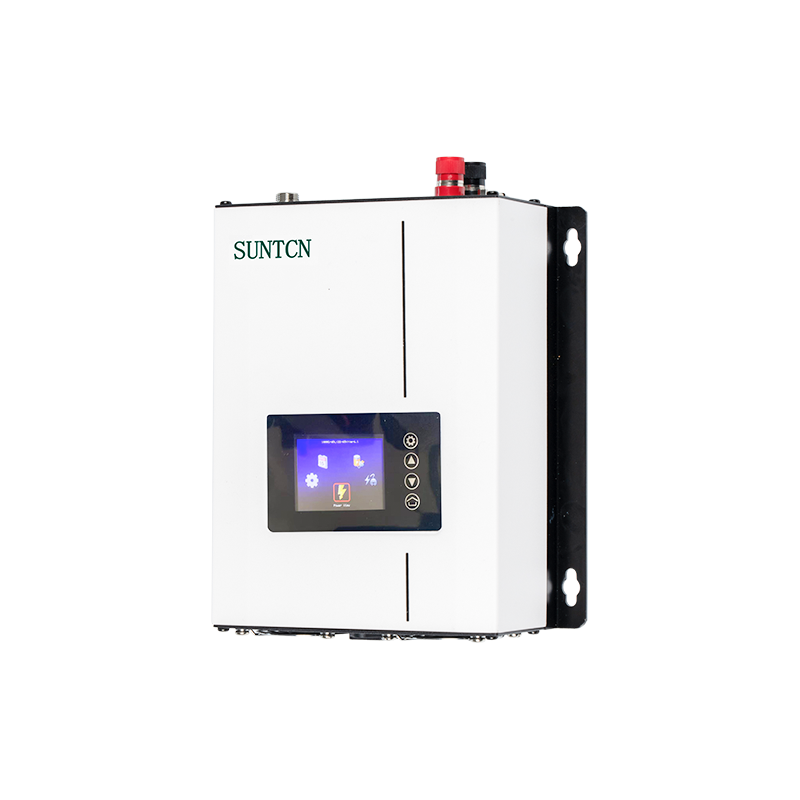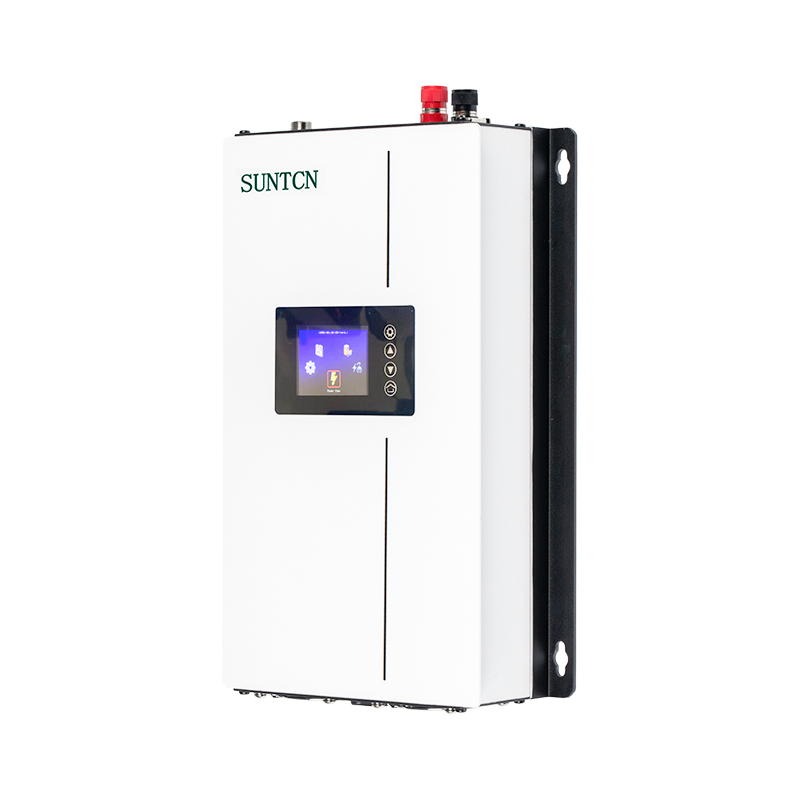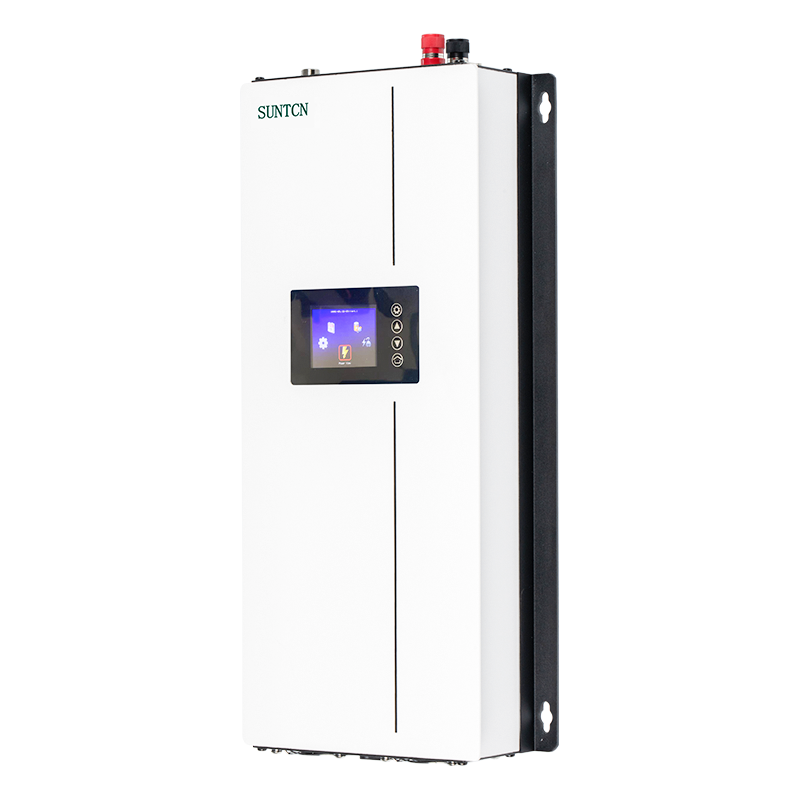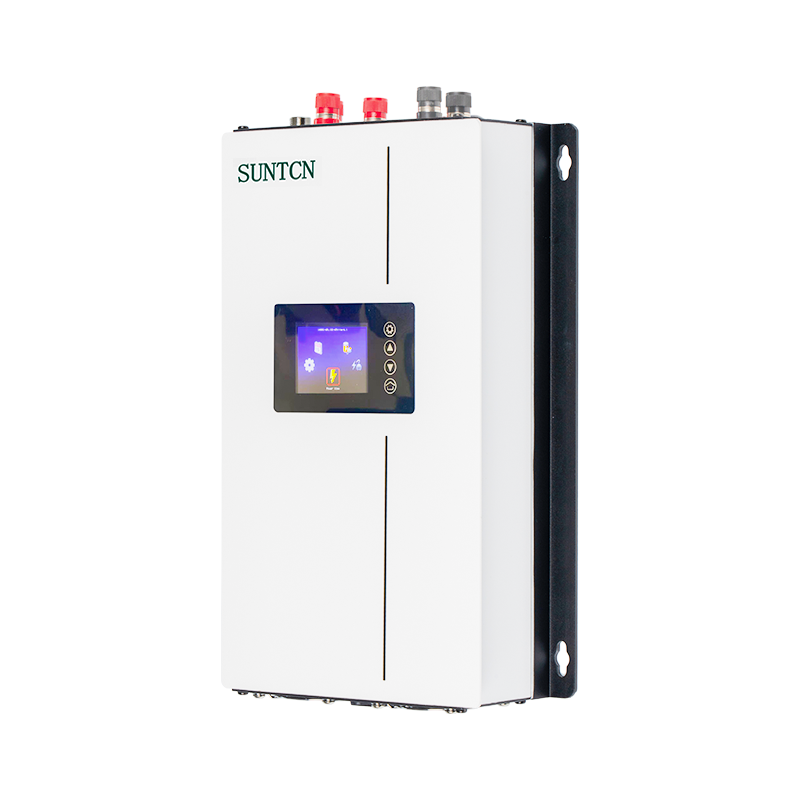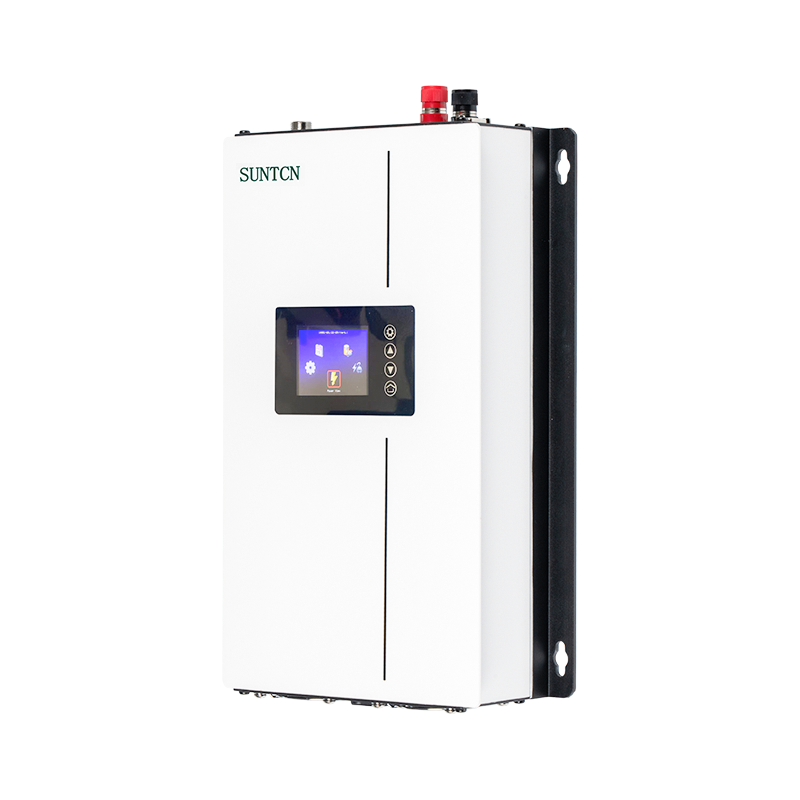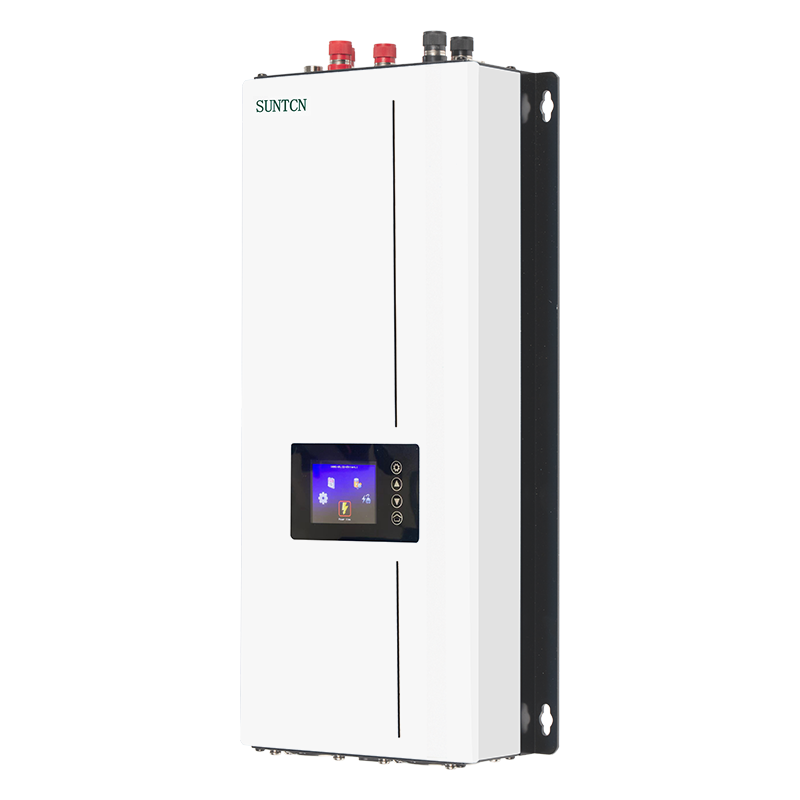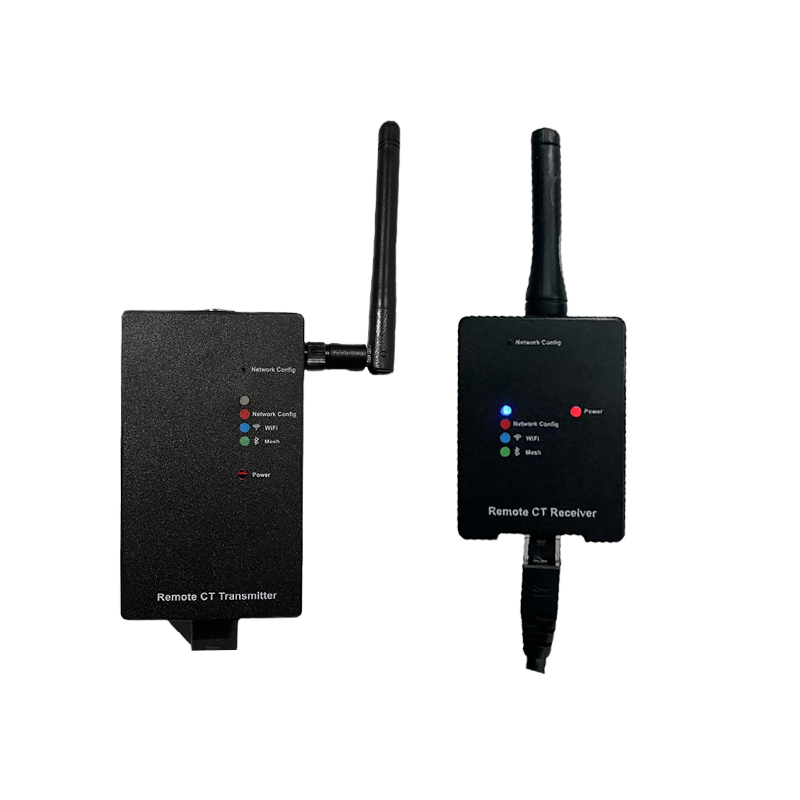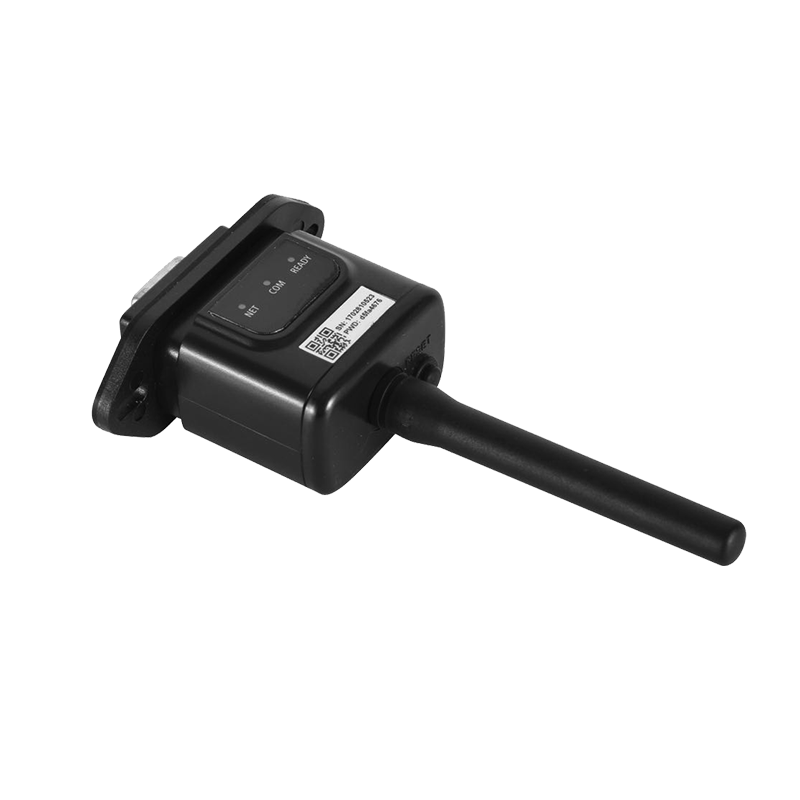As the world moves toward more sustainable and renewable energy sources, solar power has become one of the most popular solutions for generating clean, efficient energy. However, the ability to store solar energy for use during non-sunny periods has always been a challenge. This is where PV hybrid inverters come into play. A PV hybrid inverter is a versatile and intelligent solution that allows solar energy systems to optimize power generation, storage, and consumption by integrating solar power with energy storage systems like batteries, while still being able to supply power from the grid when necessary.
A PV hybrid inverter operates by integrating the following key functions:
Similar to a standard inverter, the hybrid inverter converts the DC power generated by the solar panels into AC power that can be used to power household appliances and devices. The inverter ensures that the AC power is synchronized with the grid’s voltage and frequency, allowing the system to either provide energy to the home or export excess energy to the grid.

A major feature of hybrid inverters is their ability to work with energy storage systems, typically lithium-ion batteries or lead-acid batteries. The inverter manages the charging and discharging of these batteries, ensuring that excess energy produced by the solar panels during the day is stored in the batteries for later use. This stored energy can then be drawn upon during the night, cloudy days, or peak energy consumption hours, reducing the reliance on the grid.
In addition to managing solar power and battery storage, PV hybrid inverters also maintain a connection to the grid. This allows users to draw electricity from the grid when their solar production is insufficient, such as on overcast days or at night when the solar panels are not producing power. Some hybrid inverters also allow users to sell excess electricity back to the grid, taking advantage of net metering or other incentive programs.
Many PV hybrid inverters come with integrated energy management systems (EMS) that allow homeowners or businesses to optimize their energy consumption. Through smart technology, users can monitor their solar energy production, battery charge levels, and overall energy use in real-time. The EMS can be programmed to prioritize the use of solar power or stored battery power, ensuring that energy from the grid is only used when absolutely necessary.
One of the biggest advantages of PV hybrid inverters is the ability to reduce dependence on the electrical grid. By storing excess solar energy in batteries, users can access power even during times when their solar panels aren’t producing energy, such as at night or on cloudy days. This increases energy self-sufficiency and can result in lower electricity bills.
Hybrid inverters allow users to optimize how they use energy. By storing excess energy generated during the day, homeowners can avoid high electricity costs during peak consumption times, when energy prices are typically higher. The ability to control energy use based on solar production and battery storage ensures that solar power is used most efficiently.
With the ability to store energy and use it when needed, PV hybrid inverters can reduce electricity bills by minimizing the amount of electricity drawn from the grid. Additionally, many utility companies offer incentives such as net metering, where excess solar power fed back into the grid can result in credits on the electricity bill, further offsetting costs.
In areas where grid reliability is an issue, a PV hybrid inverter with battery storage can provide backup power during blackouts or power outages. This is especially important for households or businesses that rely on continuous power for critical devices or operations.
By harnessing solar power and reducing reliance on the grid, PV hybrid inverters contribute to reducing carbon emissions and supporting the transition to a more sustainable energy system. Solar power is a clean, renewable energy source, and by combining it with battery storage, users can maximize their use of green energy.
In residential applications, PV hybrid inverters are used to provide homeowners with reliable and efficient solar energy solutions. These systems are particularly beneficial in areas with high electricity costs or frequent power outages, allowing homeowners to store excess solar energy for later use.
Commercial and industrial users can also benefit from PV hybrid inverters by reducing energy costs and enhancing energy security. Large businesses or manufacturing plants can take advantage of hybrid inverters to manage their energy consumption, reduce peak demand charges, and lower their environmental impact.
In remote locations or off-grid areas, PV hybrid inverters are ideal for providing reliable power where grid access is limited or unavailable. These systems can store enough energy to meet the needs of off-grid homes, rural communities, or remote operations like agricultural facilities or research stations.
PV hybrid inverters can also be used in electric vehicle (EV) charging stations. By integrating solar power with battery storage, these stations can charge EVs using clean, renewable energy while reducing the cost and environmental impact of grid electricity.

 English
English Español
Español Deutsch
Deutsch